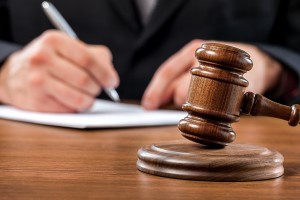Following the death of a loved one or close family friend, a number of affairs relating to the dead person’s (or, in legal terminology, the decedent’s) estate must be addressed and handled. In some scenarios, the decedent may have dutifully and diligently prepared for this day and drafted a will as part of an estate plan. Preparing and safekeeping estate planning documents like a will can help loved ones handle the estate while grieving over their loss.
However, even the most careful planning can be disrupted by an executor, in Maryland called a personal representative, who places his or her self-interest above those set forth in the will. In other circumstances, the actions of the personal representative may be challenged by a party who feels they are not being treated fairly under the will’s terms.

Attorney William Heyman is highly experienced in handling litigation arising from disputes regarding the administration of an estate. Working from the Baltimore-based Heyman Law Office, Mr. Heyman and his team of lawyers represent fiduciaries such as personal representatives and beneficiaries and other claimants throughout the State of Maryland when allegations of wrongdoing are made concerning the actions of a personal representative.
Who Is the Personal Representative and What Are the PR’s Responsibilities?
A personal representative (“PR”) is appointed by the drafter of the will (the testator) and is the person responsible for the administration of an estate following the testator’s death. Another way to think about the PR is that he or she will act as the administrator for the estate and work to ensure that the goals and wishes set forth in the will are accomplished. The executor is required toengage in an array of activities to achieve this goal based on instructions in the will and other planning documents. From notifying banks and other relevant parties about the decedent’s passing to setting up processes and procedures to settle the debts held by the estate and to oversee the distribution of property to beneficiaries, the personal representative has critical responsibilities to the testator and to his heirs and other beneficiaries.
All personal representatives have a duty to act as fiduciaries. All fiduciaries must ensure that they act as required by the testator in his will. . Fiduciaries are not permitted to engage in self-serving actions or to unjustly enrich themselves through their role as a fiduciary. Fiduciaries typically face special legal risks should a party challenge actions. For instance, fiduciaries can conceivably be held personally liable for mistakes regarding certain obligations such as failure to pay tax, improperly favoring certain beneficiaries or permitting property or casualty insurance to lapse.
What Are Common Reasons for Litigation involving Wills and Personal Representatives?
In most scenarios, personal representatives (usually a family member of the deceased) dutifully carry out their responsibilities. However, there are an array of common scenarios where serious disputes over both wills and the personal representatives action. These circumstances include:
- Caveat Proceedings – These occur when one party challenges a will’s legality. This situation often arises when a will is changed by someone late in life, who perhaps is under the undue influence of others. In the classic example that one still sees now and then in the news, a 90-year old man in a nursing home with potential dementia somehow changes a will in place for 40 years and gives his entire estate to his new 45 year old wife. In such a circumstances, if substantial assets are involved, litigation will invariably occur.
- The PR has a conflict of interest – PRs and other fiduciaries have a general duty to avoid conflicts of interest. Prudent executors will work to ensure that no actual or appearance of a conflict exists between his or her own interests, the interests of the estate in general, and the interests of the beneficiaries.
- The PR remains in possession of land or property without justification – Some executors may retain certain property or assets for period of time longer than what certain beneficiaries believe is necessary. The individual making the challenge may fear that the executor is misappropriating or converting the property.
- Hostility between the PR and the beneficiaries– Generalized hostility can exist between the beneficiaries and the PR for an array of reasons. In some situations, it may be as simple as a beneficiary feeling that he or she was disrespected by not being selected to serve as the PR. In other cases, beneficiaries may blame the PR for any aspect of the process that does not meet the beneficiaries’ expectations.
- The PR ignores the wishes set forth in the will – In some scenarios, the PR may give the impression that he or she is substituting his or her own judgment for those of the decedent. While personal representatives must sometimes make judgment calls, actions that appear counter to the intent and purpose of the will are likely to be challenged.

Essentially, any improper action or breach of the personal representative’s fiduciary duty can result in litigaton. Unfortunately, litigation can still arise even when the actions of the personal representative are proper. Whatever the case, experienced counsel is needed in these cases, which often can make an incredible financial impact on a family’s financial and emotional well-being.
Work with a Strategic Baltimore Will and Estate Attorney Lawyer
If you are concerned about the validity of a will, or have legal issues concerning a will’s administration by its personal representative (whether prosecuting or defending), attorney William Heyman stands ready to help. To schedule a confidential consultation at the Heyman Law Office in Baltimore with Mr. Heyman or another lawyer, call the firm at (410) 305-9287 or online today.
